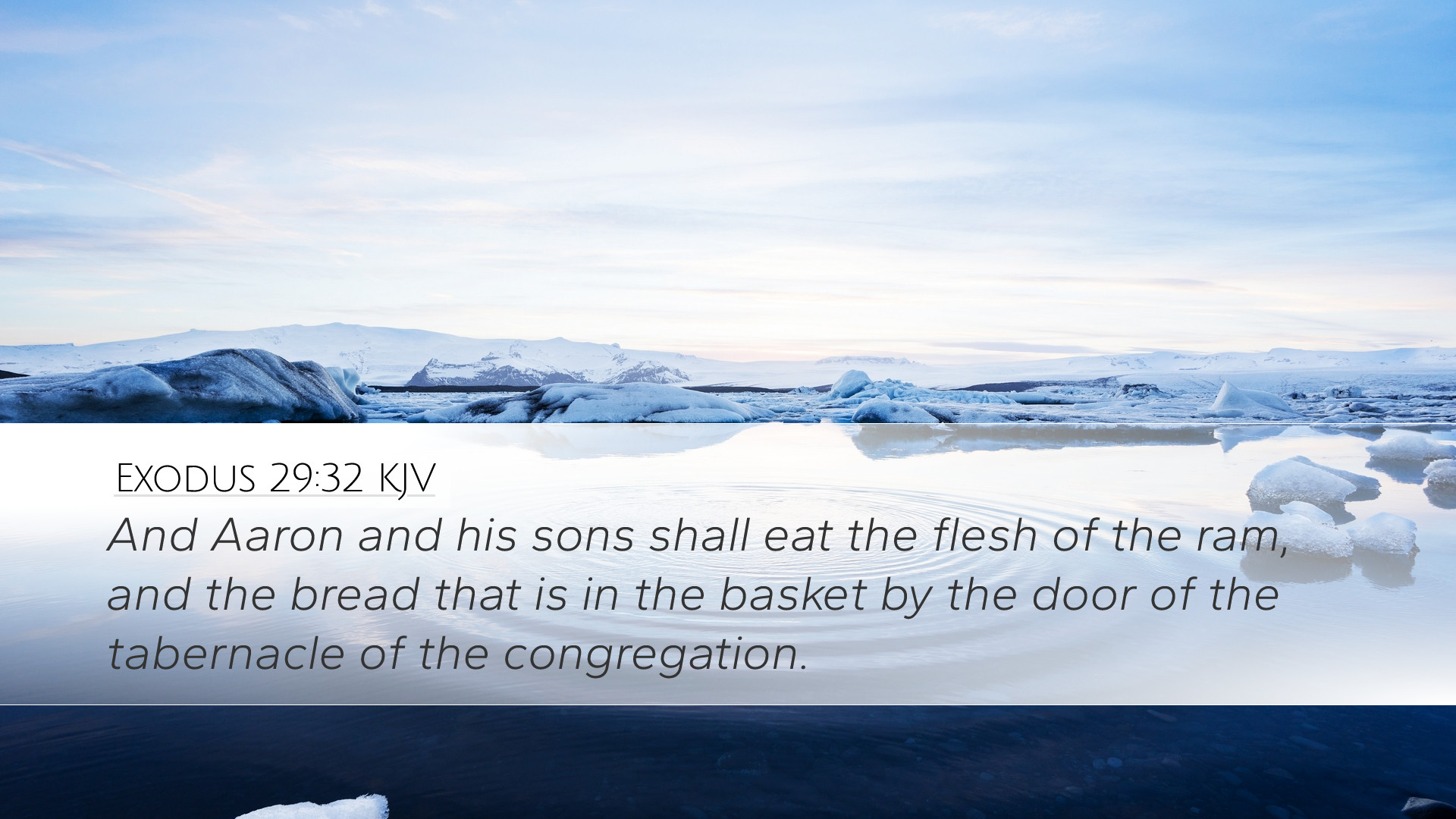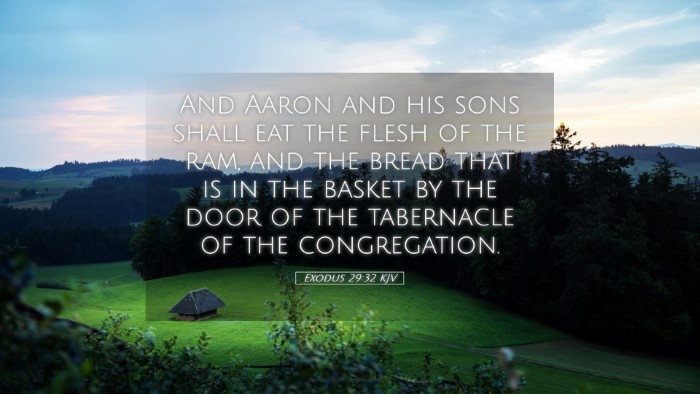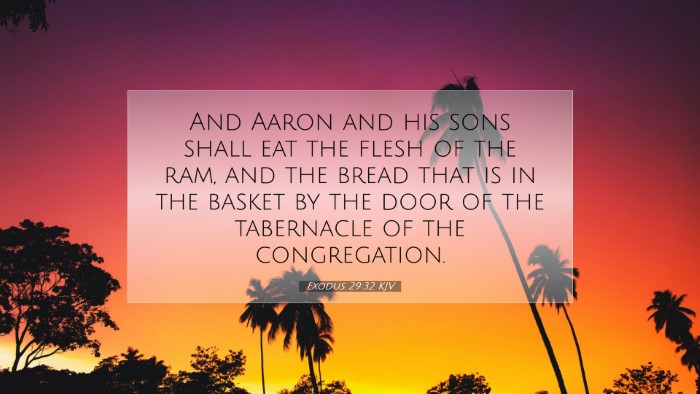Exodus 29:32 - Commentary Summary
Verse: "And Aaron and his sons shall eat the flesh of the ram, and the bread that is in the basket, by the door of the tabernacle of the congregation." - Exodus 29:32
Introduction
This verse highlights a critical aspect of the consecration of Aaron and his sons as priests. It signifies not only their appointment but also the sacrificial system that undergirds the Levitical priesthood. Understanding this verse requires examining the principles of sacrifice, fellowship, and divine service that permeate the fabric of Israelite worship.
Contextual Background
The passage describes the ordination ceremony for the priests which God commanded Moses to perform. Each element of the service was steeped in meaning, illustrating the holiness required for those who would serve before God on behalf of the people.
Historical Setting
- Levitical Priesthood: The role of the priests was to mediate between God and Israel.
- Sacrificial Rituals: Sacrifices were central to worship as they symbolized atonement and fellowship with God.
The Significance of the Eating Ritual
The act of eating the flesh of the ram and bread served multiple purposes:
- Fellowship with God: It represented a communion between God and the priests, establishing a covenant relationship.
- Consecration: This meal was part of their ordination, emphasizing their new role as mediators of God's mercy.
- Participation in Sacrifice: By eating the sacrifice, the priests were visibly participating in the act of atonement and acknowledging its significance.
Insights from Public Domain Commentaries
Matthew Henry
Henry emphasizes that the act of eating signifies the acceptance of the offering by God and the role of the priests as beneficiaries of what is offered to God. It is indicative of the unity and relationship that the priests are to maintain with both God and the Israelites. As Henry points out, the priests are called not just to serve but to partake in the holiness that the offerings represent.
Albert Barnes
Barnes brings to light the notion that this eating was a means of sanctification. By consuming the flesh and bread, Aaron and his sons were symbolically taking in the spirit of their office. This participation became a vital method through which God imbues His servants with the requisite spiritual life for their sacred responsibilities. He also notes that this ritual underlines the serious responsibility placed upon the priests to live a life worthy of their calling.
Adam Clarke
Clarke offers insights into the significance of the bread in the ceremony. Bread, in biblical terms, is often associated with sustenance and life. In this context, the bread signifies the priest's reliance on God's provision not just for physical sustenance but for spiritual vitality in their ministry. Clarke underscores that the consumption of both the ram's flesh and the bread denotes a deeper integration of divine principles into the life of the priesthood.
Theological Reflections
This verse, therefore, serves as a reminder of several theological truths that should be woven into the ministry of pastors and theologians today:
- Relationship with God: The importance of maintaining a personal communion with God through participation in His offerings.
- Role of the Minister: The need for ministers to recognize their identity in Christ, the ultimate priest, and their call to represent God to the people.
- Community and Service: Understanding that service in ministry is also about inviting community into a relational dynamic with God.
Conclusion
Exodus 29:32 is a profound illustration of the idiom of sacrifice and the responsibilities of the priesthood. The insights from the commentaries by Henry, Barnes, and Clarke demonstrate the intricate relationship between worship, sacrifice, and service. For pastors, students, and scholars, the call remains to embrace the teachings inherent in this verse and apply them to contemporary Christian ministry, ensuring that they lead in holiness, integrity, and communion with God.


